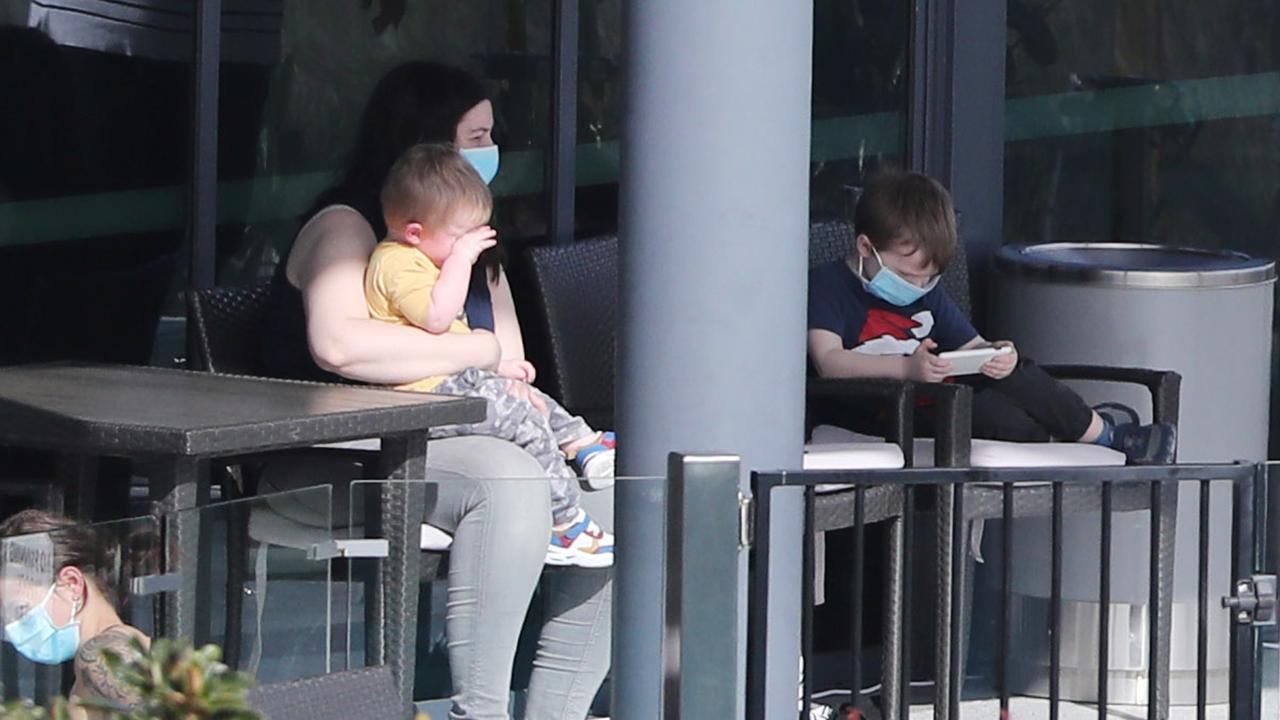Dannii Minogue skips hotel quarantine to stay in private Gold Coast home
Dannii Minogue’s return to Australia won’t involve a stay in hotel quarantine, with the pop star granted an exemption to self-isolate in a private home.
Unlike other Australians coming back from their overseas travels, celebrity judge and pop star Dannii Minogue’s return Down Under won’t come with a $2800 bill and 14-day stay in hotel quarantine.
Instead, Minogue and her son will self-isolate for the mandatory two weeks from the comfort of a private residence on the Gold Coast, 7 News reports, with the Queensland Government granting her an exemption on medical grounds.
The 48-year-old returned from the coronavirus-riddled United States over the weekend and headed straight to the Gold Coast property, reportedly given the exemption following a medical certificate provided by her doctor.
However, she’ll still be subject to the same rules as those in quarantining in a hotel – meaning nobody is allowed to come and go from the home, and she’ll reportedly be tested for COVID-19 multiple times.
RELATED: Follow the latest coronavirus updates

What Minogue will be exempt from, however, is the mandatory $2800 bill for hotel accommodation that all returning travellers have to pay under current Queensland quarantine laws.
The Queensland Government told 7 News they were unable to comment on the singer’s case, and there are no suggestions Minogue has in any way breached COVID-19 restrictions.
“While we cannot comment on individuals, Queensland Health has strong arrangements in place whether people are quarantining inside or outside hotels,” a spokesperson told the publication.
RELATED: 14-day hotel quarantine freebies to end

Queensland Premier Annastacia Palaszczuk brought an end to the Government footing the hotel quarantine bill mid-June, with a statement on the State Government’s website declaring it had spent a whopping $19 million accommodating international arrivals.
“To date, the Queensland Government has spent more than $19 million accommodating international arrivals,” the website states.
“We project that figure to surpass $24 million by June 30. This was a critical measure to prevent COVID-19 but it also has been a costly measure to the public.”
Returning travellers also aren’t able to arrange to self-quarantine at home or at another pre-booked accommodation.
“This is due to the significant health risk that cannot be appropriately managed at other residences or accommodation providers,” the website states.
“The risk of quarantine not being strictly followed and the ability for people to mix more easily in the community creates an unacceptable risk of COVID-19 transmission in the community.”




